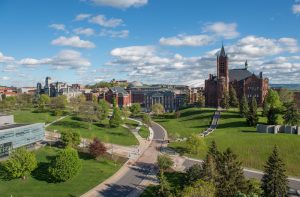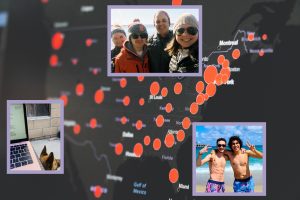Newhouse alum documents coronavirus in China
Newhouse alum documents coronavirus in China
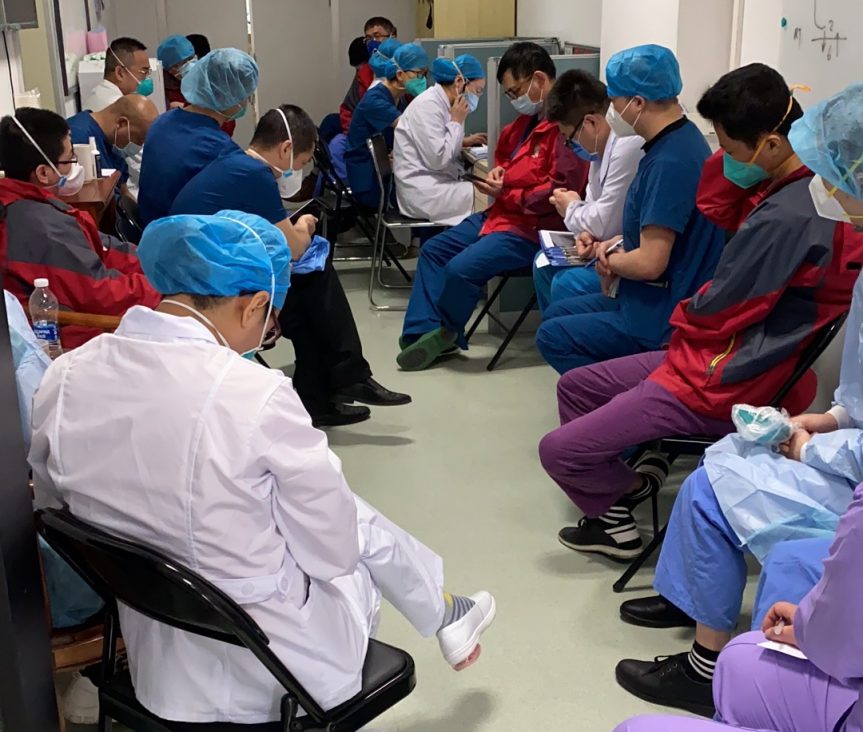
As international borders close, New Yorkers adjust to working from home and the class of 2020 reconciles with their postponed commencement, one Syracuse University alumnus is working to document coronavirus from the city where the outbreak began.
Zixi Wu, a 2014 Newhouse School photography graduate student, has been shooting a documentary at an Intensive Care Unit (ICU) in Wuhan for ThePaper.cn since early March.
“The story mainly focuses on the night shift of those doctors, so I usually wake up late in the day and work late in the night. I just finished shooting a midnight shift of the director’s wife who is a chief nurse at a fever clinic in the hospital,” Wu said via Facebook Messenger.
Along with his shooting partner/director, Wu has been staying in a hotel for journalists that are reporting on the pandemic. Many of the doctors that they’ve been filming have been working continuously for more than two months to battle the spread.
“My colleague and I also want to cover more stories about patients and medical workers who got infected,” he said. “The whole story is about the ending of this pandemic in Wuhan.”
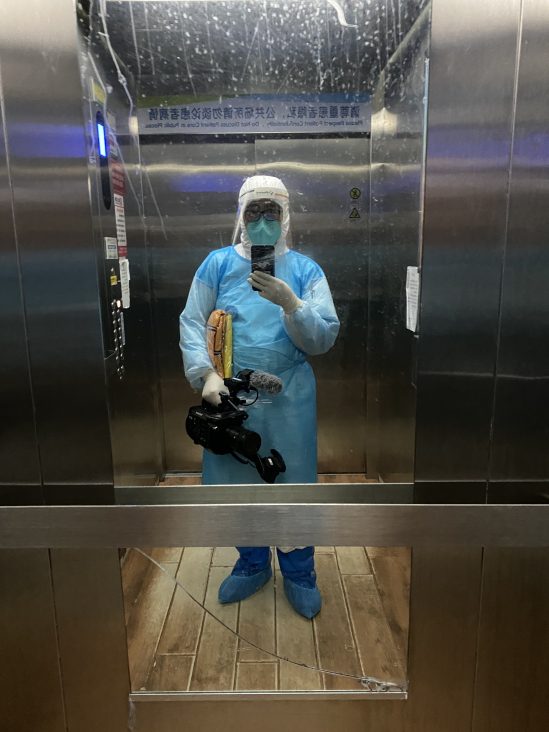
As of March 14, Wu said that the hospitals he’s been in have made significant progress and had strung together three days with no new infected patients.
“Doctors and nurses in the hospital are pretty optimistic about the virus,” he said. “Although in the ICU, those patients are still heavily sick, but at least the death rate has been reduced greatly.”
Also, Wu has observed that medical supplies are sufficient and outside medical professionals have been coming to help.
“We have two to three national specialist doctors here, so I just need to protect myself as they do,” he said.
While Wu is working, he wears protective clothing including an N95 medical mask, a face shield, shoe covers and two layers of gloves. However, his gear doesn’t get the same treatment.
He has three cameras — a Blackmagic 4K, Sony A7S2 and Sony FS7 — each for different uses. The first is for daily shooting in safe areas, the second is flexible for different spaces and the FS7 is used specifically in contagious areas.
Rather than sterilize the whole camera daily, Wu leaves it in the ICU, which he says keeps it relatively safe as no one wants to touch it with bare hands. Then he just has to clean and remove his batteries and SD cards once he’s done filming.
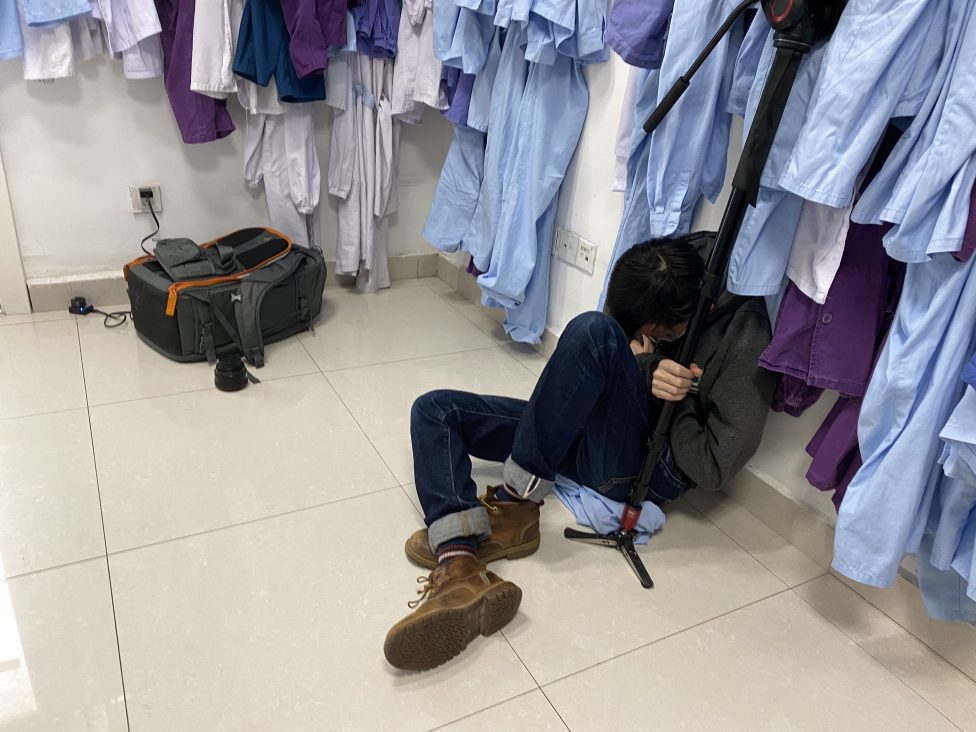
Wu's film's senior editor Shenlai Yang takes a nap during an ICU doctors' morning meeting after being awake all night documenting the night shift.
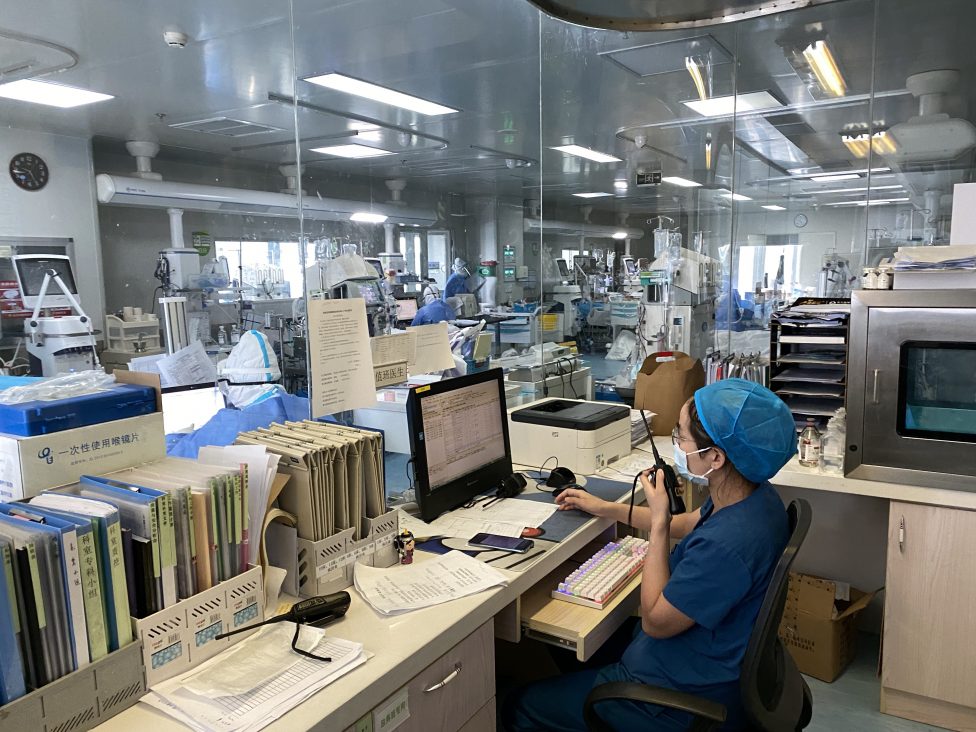
A nurse station in the ICU of Wuhan Pulmonary Hospital in Hubei Province.
How long will he keep this routine up?
“I really don’t know because I have no idea when I can go home,” Wu said.
Wuhan is still under lockdown and being strictly monitored by local authorities, he said, so only journalists and those with specific identification can even enter the city.
While reports of spring breakers refusing to social distance in the United States garnered backlash, Chinese authorities have strictly enforced distancing rules in affected cities across the country. Wu’s home is in Shanghai, which is 8-10 hours away driving or 4.5 hours by train from Wuhan.
In February, Wu recalls the impact that medical and food supply shortages was having on Shanghai’s 24 million residents. People wouldn’t go out into the streets for fear of contracting the virus.
“So when I say Shanghai is a ghost city, it’s worse than a ghost city,” he said.
The streets of Wuhan, where 11 million people reside, are also quiet now, too. At the very least, Wu says, this makes for a much more enjoyable drive when he gets out of the hospital.
“No traffic, no people, no nothing.”

